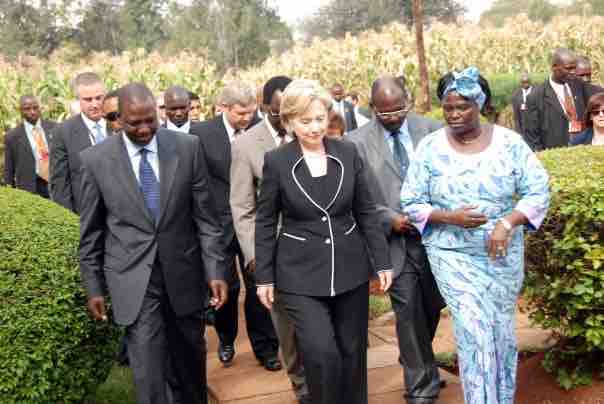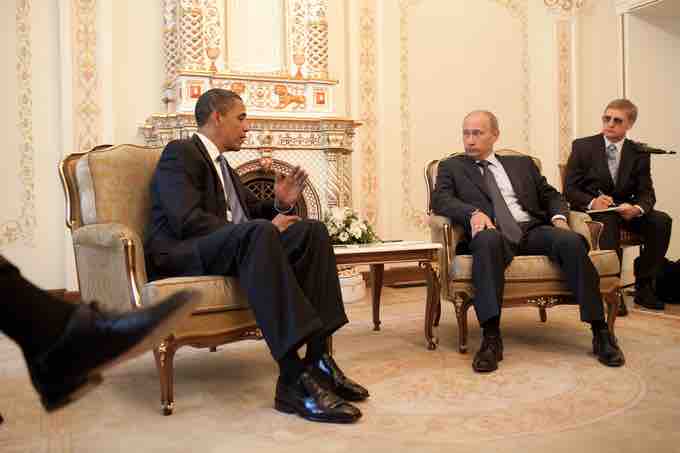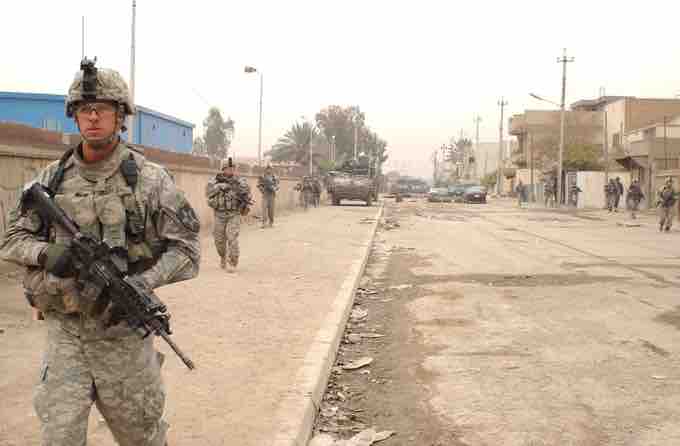What is Foreign Policy?
A country's foreign policy consists of self-interest strategies chosen by the state to safeguard its national interests and to achieve its own goals through relations with other countries. The approaches are strategically employed to interact with other countries.
In recent times, due to the deepening level of globalization and transnational activities, states also have to interact with non-state actors. The aforementioned interaction is evaluated and monitored in an attempt to maximize benefits of multilateral international cooperation. Since the national interests are paramount, foreign policies are designed by the government through high-level decision making processes. National interest accomplishments can occur as a result of peaceful cooperation with other nations or through exploitation.
Elements of Foreign Policy
Foreign policy is designed to protect the national interests of the state. Modern foreign policy has become quite complex. In the past, foreign policy may have concerned itself primarily with policies solely related to national interest--for example, military power or treaties. Currently, foreign policy encompasses trade, finance, human rights, environmental, and cultural issues. All of these issues, in some way, impact how countries interact with one another and how they pursue their national interests worldwide.
Who Is in Charge of Foreign Policy?
Usually, creating foreign policy is designated to the head of government and the foreign minister (or equivalent). In some countries the legislature also has considerable oversight.
In the United States, foreign policy is made and carried out by the executive branch, particularly the president, with the national security adviser, the State Department, the Defense Department, the Department of Homeland Security, and the intelligence agencies. The National Security Act of 1947 and recent bureaucratic reorganization after 9/11 reshaped the structure of foreign policy making.
The U.S. Secretary of State is analogous to the foreign minister of other nations and is the official charged with state-to-state diplomacy, although the president has ultimate authority over foreign policy. The current U.S. Secretary of State is John Kerry.

Secretary of State
Former U.S. Secretary of State Hillary Rodham Clinton discusses agriculture and environmental issues in Kenya. The Secretary of State is a primary leader in determining U.S. foreign policy.
Congress is involved in foreign policy through its amending, oversight, and budgetary powers and through the constitutional power related to appointments, treaties, and war that it shares with the president. While Congress has sometimes worked to limit the president's autonomy in foreign policy, the use of executive orders and the ability to enter military engagements without formal declarations of war have ensured the president's continued primacy in international affairs. Forces that sometimes influence foreign and military policies from outside government are think tanks, interest groups, and public opinion.
U.S. Foreign Policy
The foreign policy of the United States is the way in which it interacts with foreign nations. Foreign policy sets standards of interaction for its organizations, corporations, and individual citizens. Two visions of foreign policy in the U.S. are isolationism and internationalism, which has been dominant since World War II. The main foreign policies during the Cold War were containment, deterrence, détente, arms control, and the use of military force like in Vietnam.
U.S. foreign policy is far-reaching because the United States is the global superpower and world leader. It operates in a world beset by famine, poverty, disease, and catastrophes both natural (tsunamis, earthquakes) and man-made (climate change, pollution of the seas and skies, and release of radioactive materials from nuclear plants). Parts of the world are plagued by genocide, regional and ethnic strife, and refugees. Terrorism, conflicts in Iraq and Afghanistan, the nuclear weapons programs of Iran and North Korea, the proliferation of weapons of mass destruction, the Arab-Israeli conflict, and instability and challenges to autocratic rulers in the Middle East are only the most obvious of the foreign policy issues that affect the United States. Others issues include economic upheavals, the rise of China to world economic and political power, relations with Russia, AIDS in Africa, dependence on oil from non-democratic states, the importation of illegal drugs, and the annual U.S. trade deficit of around $800 billion .

Obama and Putin
U.S. President Obama and Russian President Putin meet. Relations with other countries, such as the U.S.-Russia relationship, are a primary concern and focal point for U.S. foreign policy.
To prepare for these foreign policy issues, U.S. military expenditures are enormous. The annual defense budget is around 1.3 trillion. It has formal or informal agreements to defend 37 countries. It has more than 700 military installations abroad in approximately 130 countries . The United States is extraordinarily active, often militarily, in international affairs. Since 1989, it has intervened in Panama, Kuwait, Somalia, Bosnia, Haiti, Kosovo, Afghanistan, and Iraq.

U.S. Military Strength
U.S. soldiers patrolling streets in Iraq. The United States' huge military budget and extensive military is intended to further U.S. foreign policy interests.